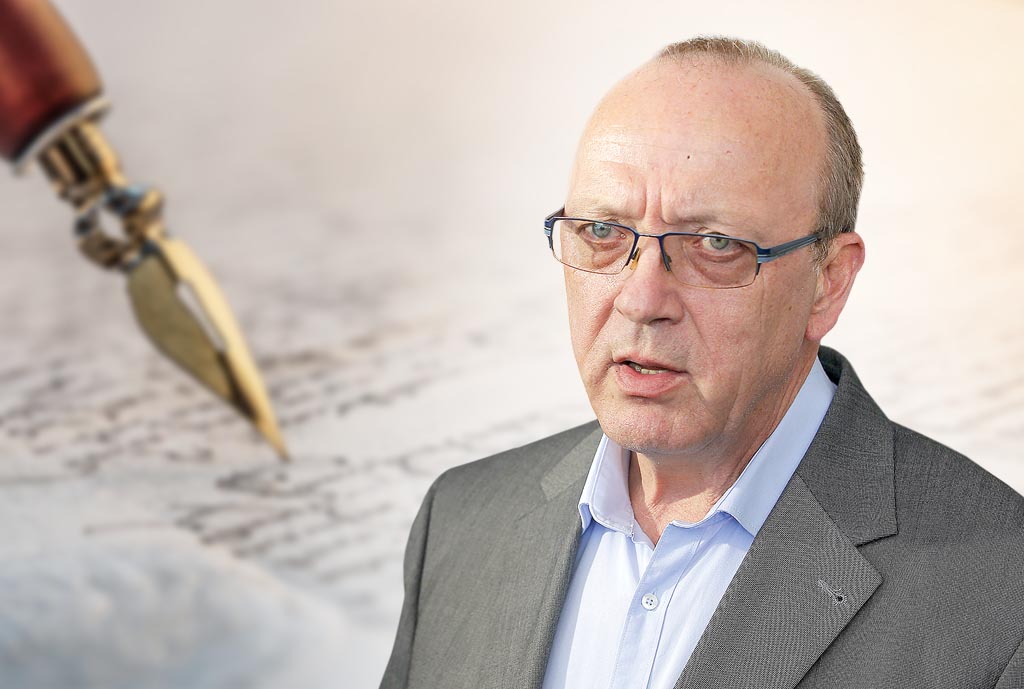By: Dr Vinko Gorenak
Have you seen the police vehicle around which a group of underage individuals stopped a few days ago in Ljubljana? They stopped the police vehicle, threatened the police officers, insulted them, and provoked them. I will refer to them as a group of youngsters. The police officers activated sirens and blue lights, but the group of youngsters continued to threaten, provoke, and insult them. The police officers then literally fled by reversing and avoiding the group of youngsters on the other side.
The two police officers had all the police powers, from a warning to the use of firearms, in accordance with the law. They were equipped with pistols, batons, pepper spray, handcuffs, and more. However, despite having all these tools, they chose to retreat from the group of youngsters. To be fair, at this point, it should be mentioned that it was more of a tactical withdrawal until other police patrols arrived to restore public order. Allow me to analyse this event from a somewhat professional perspective; after all, I worked in the police for almost 30 years.
Firstly, during my time, whether it was during the militia era before 1990 or the police era until 1999, something like this would never have happened. First, because young people back then would never have even thought of doing such a thing, and secondly, because the police officers would have reacted by using force. The fundamental question of why things have changed so drastically lies in the attitude of the authorities towards the police and police officers.
Police officers are representatives of the state with legally defined powers to ensure public order and peace in the broadest sense of the word, within the limits set by the law. Our police legislation is practically no different from the police laws of other European countries. So why do we see police officers in Paris, Brussels, Berlin, and elsewhere who deal quite harshly with public order violators? Strikes with batons, handcuffing, the use of gas, arrests, and more are quite normal there during violent demonstrations. Authorities there often do not comment on such situations because they know the police have carried out tasks assigned by the law.
With practically the same police legislation, the situation is different in Slovenia. Violent protesters attack police officers, insult them, throw various objects at them, and only occasionally do we see our police officers responding with the use of force. During violent demonstrations in 2012/2013 and during the third Janša government in 2020/2022, we had a much higher number of injured police officers than violent demonstrators. So, who is violent – the police or the violent demonstrators? The answer is evident.
So, the fundamental question arises: why is this happening? The answer is apparent even in this case. Let me analyse it through two examples. The first example involves numerous violent demonstrations by the Ljubljana “bike parade” in the years 2020/2022. Despite this, the police provided basic public order and peace without resorting to significant use of force. In cases of violations of decrees, they also issued fines. But behold, when the Golob government came, they decided to simply return the fines to the violators, and they did. Do you know what this means for an individual police officer? It means extreme humiliation by the state. Today, police officers naturally wonder why they should even perform their duties mandated by the law if a new authority arrives tomorrow. This new authority would nullify their work, insult them, and reward the violators. The second example involves the massive and violent demonstrations on October 4th and 5th, 2021, during the EU Western Balkans Summit in Ljubljana, attended by all leaders of EU and Western Balkan countries. Threats from violent protesters were clear: “We will prevent the meeting at Brdo and hinder the travels of statesmen in Ljubljana.” A challenging security task for the police and police officers. The result was that the summit proceeded virtually without disruption; the police performed their duties without significant use of force. Let’s ask ourselves what would happen if the police did not do their job. Foreign leaders would undoubtedly flee to airports in Zagreb, Trieste, Klagenfurt, and elsewhere, and Slovenia would be embarrassed. What are the consequences today for the police officers and police chiefs who performed their duties excellently? Instead of recognition and commendations, according to my information, around 15 police chiefs who excellently executed the task of securing the EU Western Balkans Summit are currently undergoing proceedings, first before the prosecution, and later before the courts. Do you wonder what these police chiefs are thinking? Probably something like this: “Next time, I will look the other way, and let it be what it will be.” Such behaviour of authorities toward the police and police officers is extremely unacceptable, irresponsible, not to mention anything worse.
In conclusion, let’s return to the two police officers mentioned in the introduction. Let’s ask ourselves why they acted that way. I also wondered how I would act in their place. Most likely, I would act in the same way, so I do not condemn their actions. However, what is condemnable is the conduct of the state and authorities toward the police and police officers.

